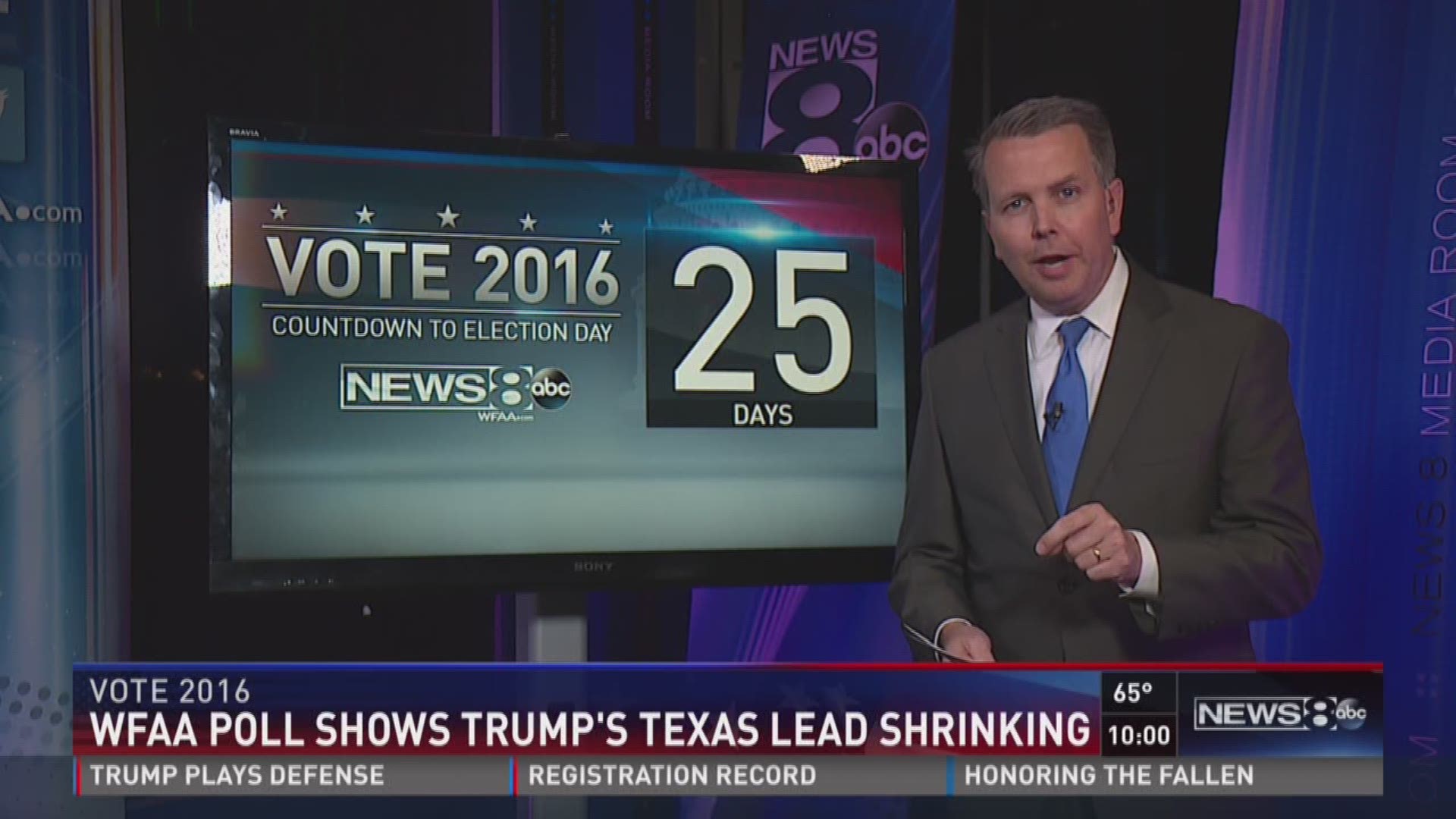After perhaps the most damaging week of his campaign, Donald Trump’s lead in Texas has slipped to four percentage points – within the margin of error – according to a new poll released Thursday night.
The survey, commissioned by WFAA-TV and Texas TEGNA television stations, shows Trump leading Hillary Clinton by 47 percent to 43 percent. The margin of error is four percent.
"I think to put these numbers in context - it shows that Trump's position has eroded a little bit. His lead is down to four percentage points according to this poll, but even in the wake of some really terrible news for him, he still leads in Texas, which shows what a tough nut Texas is to crack for Democratic candidates right now,” said Matthew Wilson, Associate Professor of Political Science at Southern Methodist University in Dallas.
Don't see graphics below? Tap here.
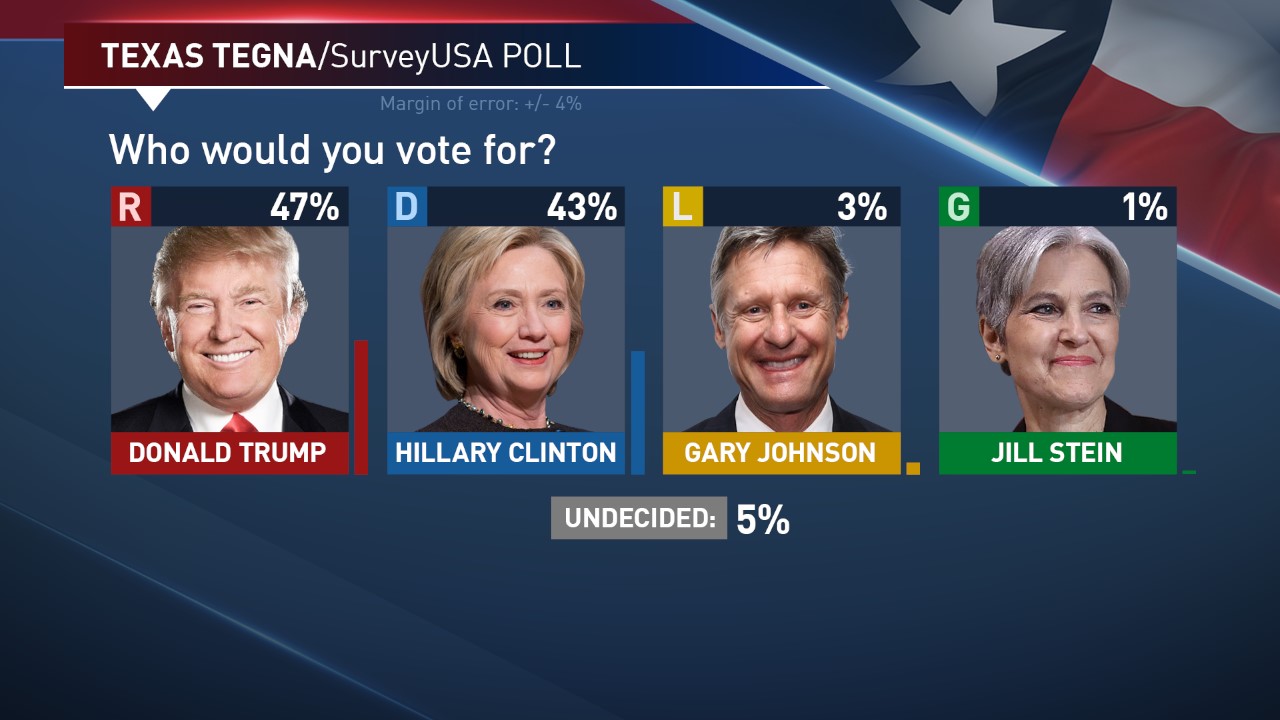
SurveyUSA conducted the poll between Monday and Wednesday of this week – after both the 2005 video in which Trump used lewd comments describing women and the second presidential debate in St. Louis on Sunday night.
In recent weeks, two other statewide polls showed Trump up by six and seven points, respectively.
"It pretty consistently shows that Trump is struggling in Texas more than a Republican typically would,” Wilson added. “He's still highly likely to win the state in the end but we typically see double digit margins for Republican candidates and Trump seems unlikely to produce that.
For perspective, Mitt Romney won Texas by 16 points in 2012, John McCain won this state by 13 points in 2008, George W. Bush carried his home state by 23 points in 2004, and 22 points in 2000 when he was elected to his first term.
The eroding support in the largest Republican state in the country could suggest deeper problems for Trump nationwide, Wilson explained.
Regionally, Trump leads by eight points in North Texas, which includes Dallas and Fort Worth and 41 surrounding counties. In Houston and 59 surrounding counties making up east and southeast Texas, Trump leads Clinton by six points.
Trump has his strongest support in west Texas, including El Paso and 87 counties – leading his Democratic challenger by 15 points.
But Clinton is ahead in Austin, San Antonio and Central Texas. She also leads by nine points in the Rio Grande Valley.
Separately, the approval rating for U.S. Sen. Ted Cruz is evenly split; 45 percent approve of his job performance and 45 percent disapprove with 10 percent uncertain.
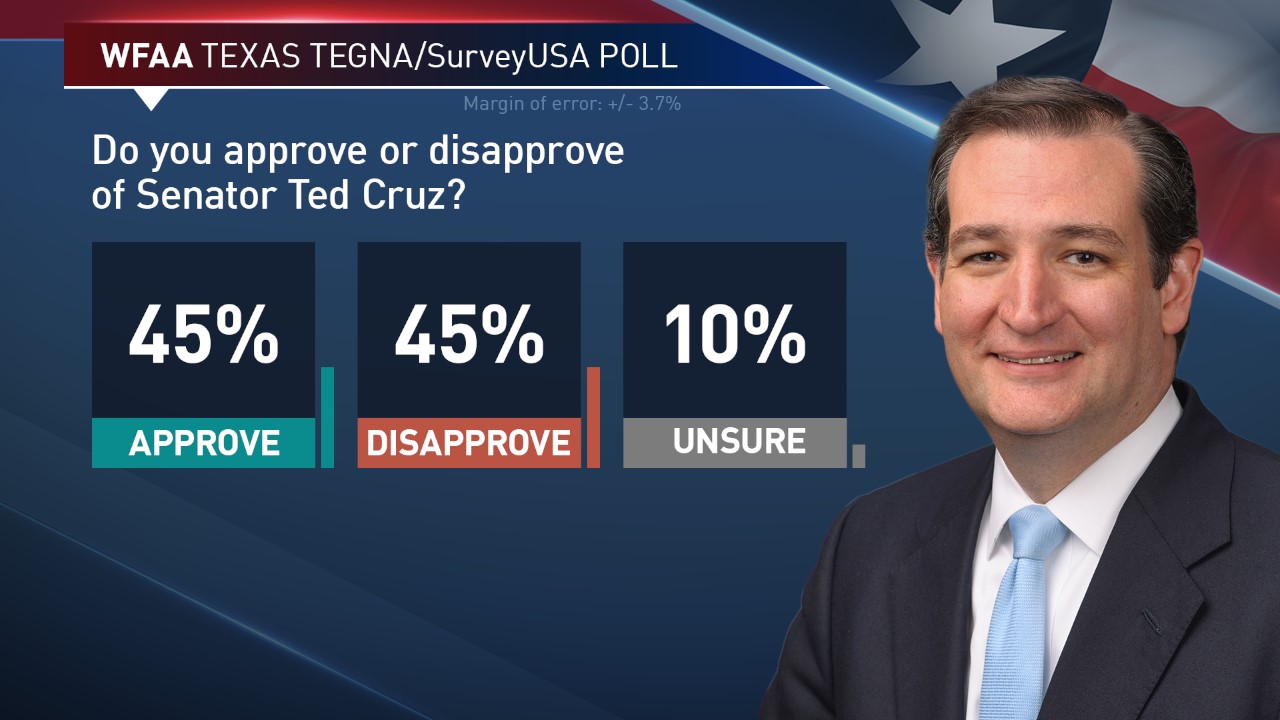
"It suggests that he may be looking at a significant primary challenge a couple years from now and I know that's something he's got on his mind,” said Wilson.
Cruz, who faces re-election in 2018, refused to endorse Trump in a high-profile speech at the Republican National Convention but finally gave in after intense pressure from his own party.
Respondents in the survey also gave opinions on two social issues making headlines in this state over recent weeks.
When asked whether transgender students should be able to use the restroom with which the identify, 54 percent said no, 38 percent said yes, and eight percent were uncertain.
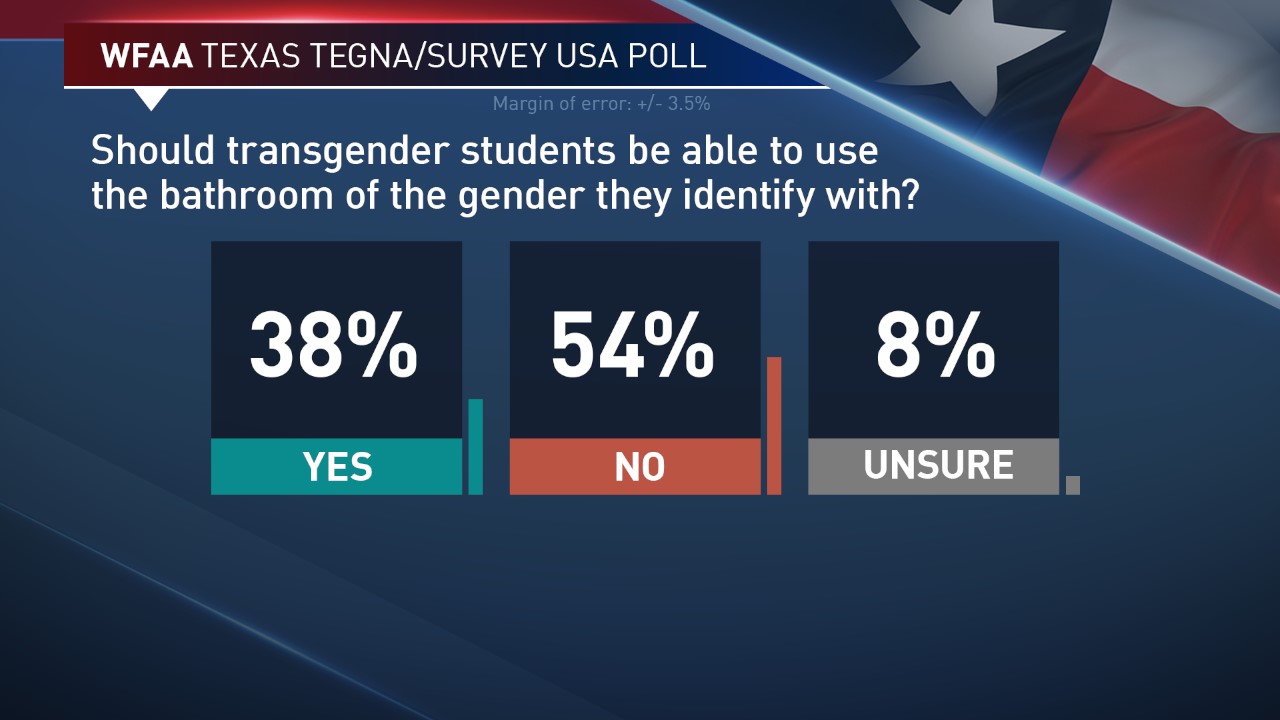
"The other interesting thing that it points to is that you've got some number of people who are saying they oppose transgender students using the bathroom of their choice who are also saying they support Hillary Clinton because 54 percent of people are opposed to transgender bathroom access but you've only got 40 something percent supporting Donald Trump. Those people are almost certainly black and Latino voters who've got socially conservative values but who are attracted to the Democratic ticket for other reasons,” said Wilson.
When asked if refugees from places such as Syria should be allowed to resettle in Texas, 54 percent said no, 34 percent said yes and 13 percent were unsure.
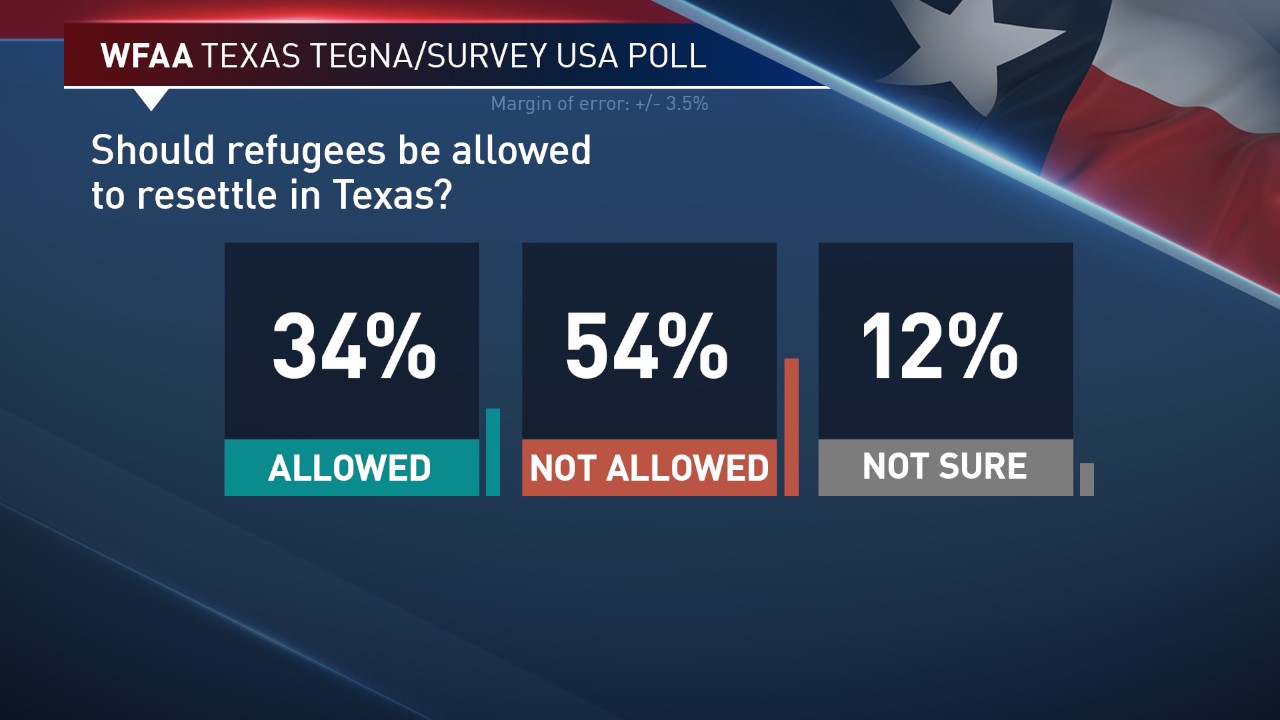
Fourty-four percent of those polled said it is "very important" for a candidate to release his or her tax returns. A majority of voters fell between "somewhat" and "not at all" important.

The poll also asked voters about Lt. Gov. Dan Patrick’s job approval. Of the registered voters, 39 percent approve, 29 percent disapprove and 33 percent are uncertain.
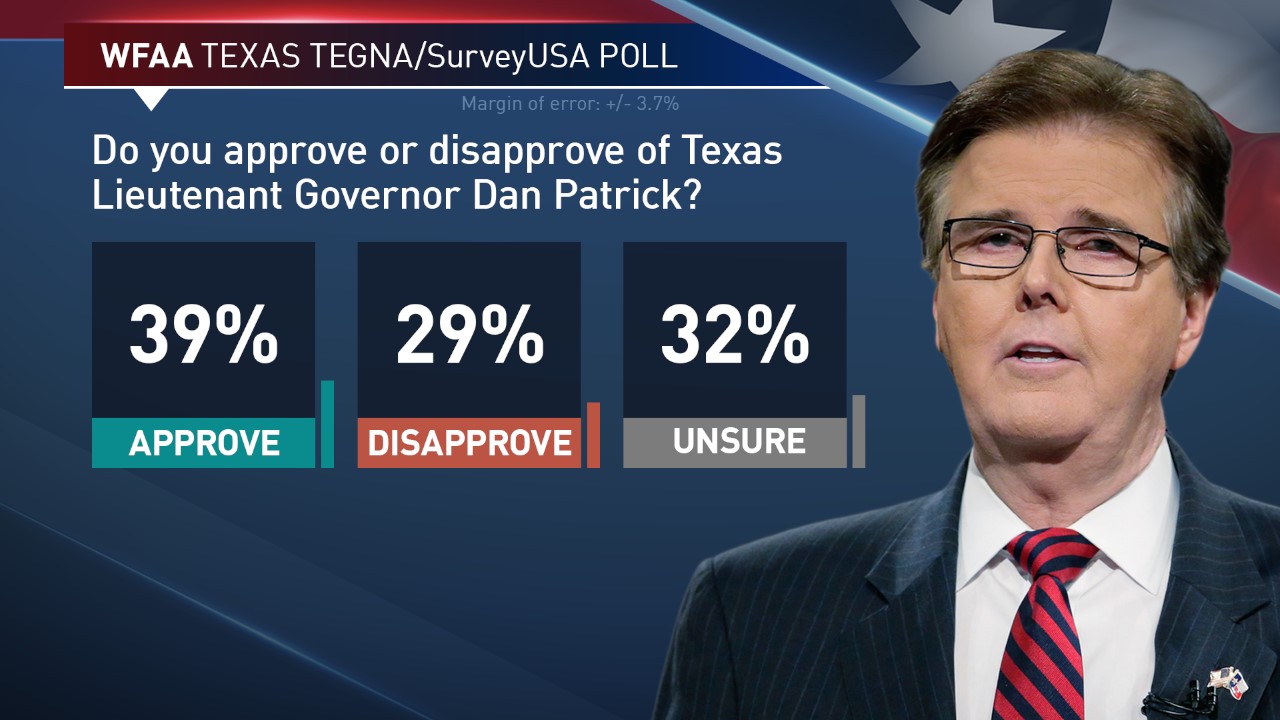
Texas Attorney General Ken Paxton had similar results; of those polled, 38 percent approve of his job performance, 31 percent disapprove and 31 percent are not sure.
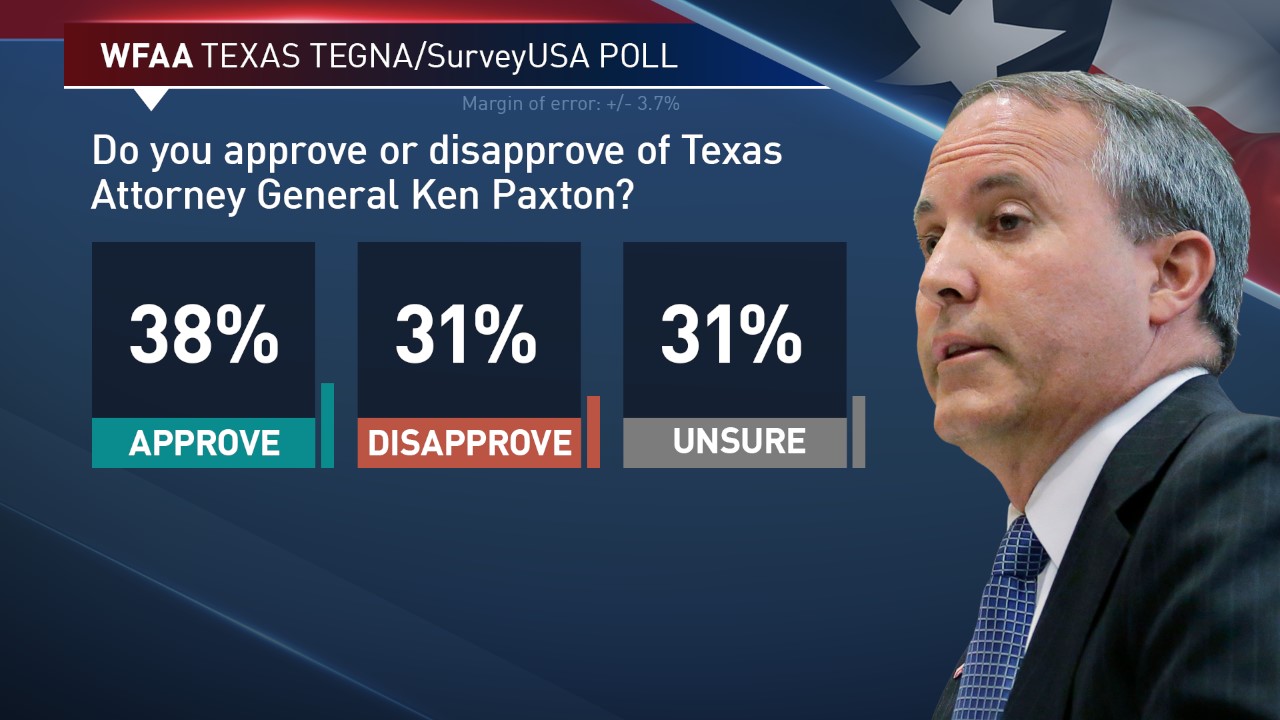
Of the 800 adults interviewed over the three-day poll, 734 were registered to vote. Of the registered voters, 638 were determined by SurveyUSA to be likely to vote on or before November 8. This research was conducted using blended sample, mixed mode. Respondents reachable on their home telephone (67% of likely voters) were interviewed on their cell phones in the recorded voice of a professional announcer. Respondents not reachable on a home telephone (33% of likely voters) were shown a questionnaire on the display of their smartphone, tablet or other electronic device.
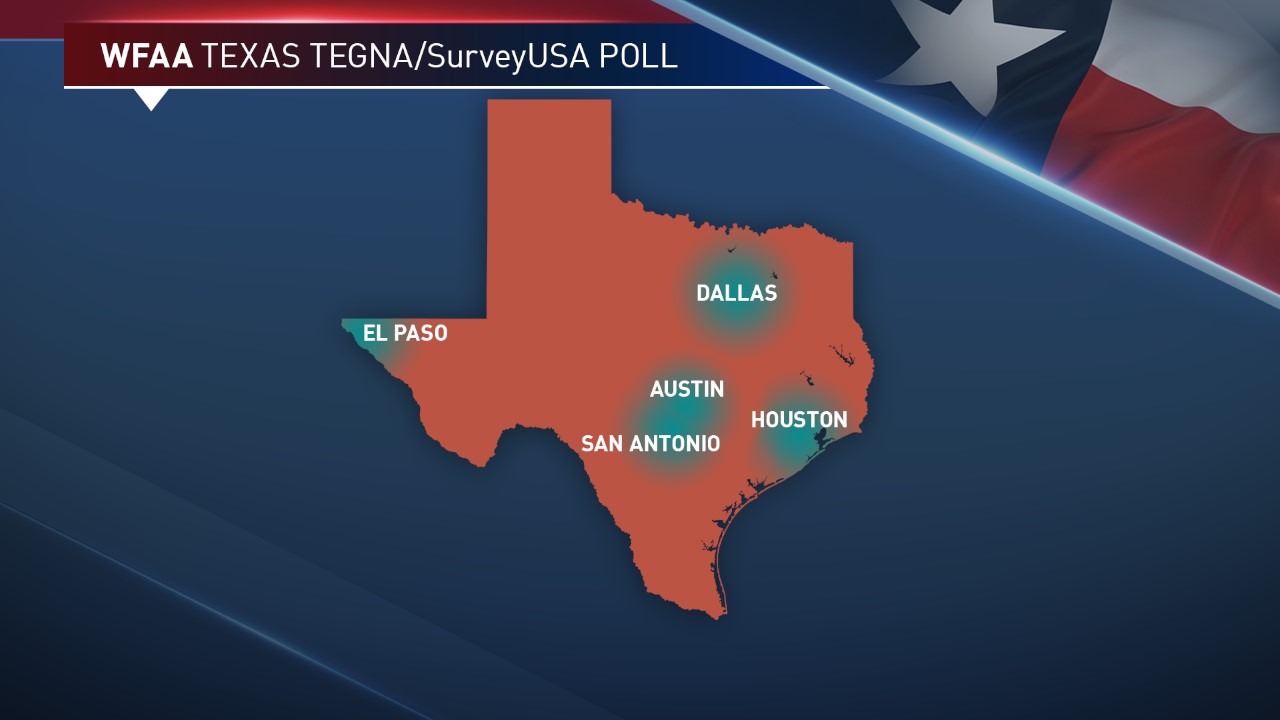
Methodology:
This poll was conducted by telephone in the voice of a professional announcer. Respondent households were selected at random, using Random Digit Dialed (RDD) sample provided by Survey Sampling, of Fairfield CT. All respondents heard the questions asked identically. The pollster's report includes the geography that was surveyed; the date(s) interviews were conducted, the number of respondents who answered each question and the theoretical margin of sampling error for each question. Where necessary, respondents were weighted using the most recent US Census estimates for age, gender, ethnic origin and region, to align the sample to the population. In theory, one can say with 95% certainty that the results would not vary by more than the stated margin of sampling error, in one direction or the other, had the entire universe of respondents with home telephones been interviewed with complete accuracy. There are other possible sources of error in all surveys that may be more serious than sampling error. These include: the difficulty of interviewing respondents who do not have a home telephone; the refusal by some with home telephones to be interviewed; the order in which questions are asked; the wording of questions; the way and extent to which data are weighted; and the manner in which specialized populations, such as likely voters, are determined. It is difficult to quantify the errors that may result from these and other factors. Research methodology, questionnaire design and fieldwork for this survey were completed by SurveyUSA of Clifton, NJ. This statement conforms to the principles of disclosure of the National Council on Public Polls.

